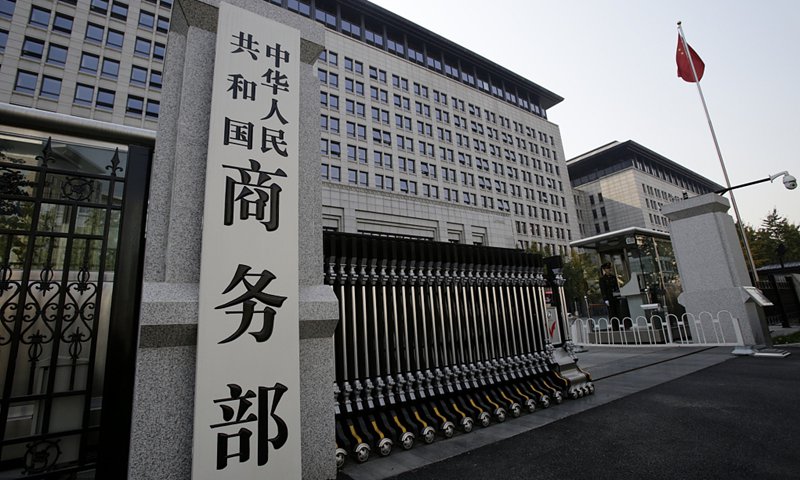China vows to stabilize exports as pillar of national economy, expand imports in 2023: MOFCOM

Photo: China's Ministry of Commerce
China's Ministry of Commerce (MOFCOM) on Thursday vowed to ramp up efforts to stabilize exports as a pillar of its national economy in 2023, while leveraging the advantages of its colossal market and increasing imports of quality products from other countries and regions.
Currently, the foreign trade environment is extremely difficult as the world economy sees rising risks of recession, so the growth of external demand is slowing down sharply and the international supply chain is seeing restructuring, Li Xingqian, director general of the Department of Foreign Trade at MOFCOM, said at a press briefing.
Against this backdrop, efforts are needed to stabilize the scale and improve the structure of the country's foreign trade, so as to stabilize exports as a pillar of the national economy, Li said.
In 2023, MOFCOM will carefully serve foreign trade enterprises, optimize and introduce new trade policies, help enterprises reduce costs and increase efficiency, and continuously improve the comprehensive competitiveness of the nation's foreign trade, Li vowed.
The scale of China's imports and exports hit a record high in 2022, totaling $6.3 trillion. China has remained the largest economy in goods trade for six years in a row, according to MOFCOM data.
China's two-way trade with major trading partners continued to grow in 2022, including 15 percent growth with the ASEAN bloc, 5.6 percent with the EU and 3.7 percent with the US. Electric vehicles, photovoltaic products and lithium batteries have become new export growth drivers, MOFCOM officials said.
Domestically speaking, foreign trade has made an important contribution to the overall economic recovery, boosting GDP growth by 0.5 percentage points in 2022. In international terms, China has helped to stabilize production and exports against the backdrop of a volatile global economic and trade environment, ensuring smooth operation of the global industrial chain and supply chain, Li noted.
China's imports reached $2.71 trillion last year, contributing greatly to global economic and trade development.
The country will strive to leverage the advantages of its huge market and increase imports from overseas so as to stabilize the global supply chain in 2023, Li said, adding that China will continue to enhance innovation in the foreign trade sector, while promoting the sustained, rapid and healthy development of cross-border e-commerce, overseas warehouses and other new forms of business.

